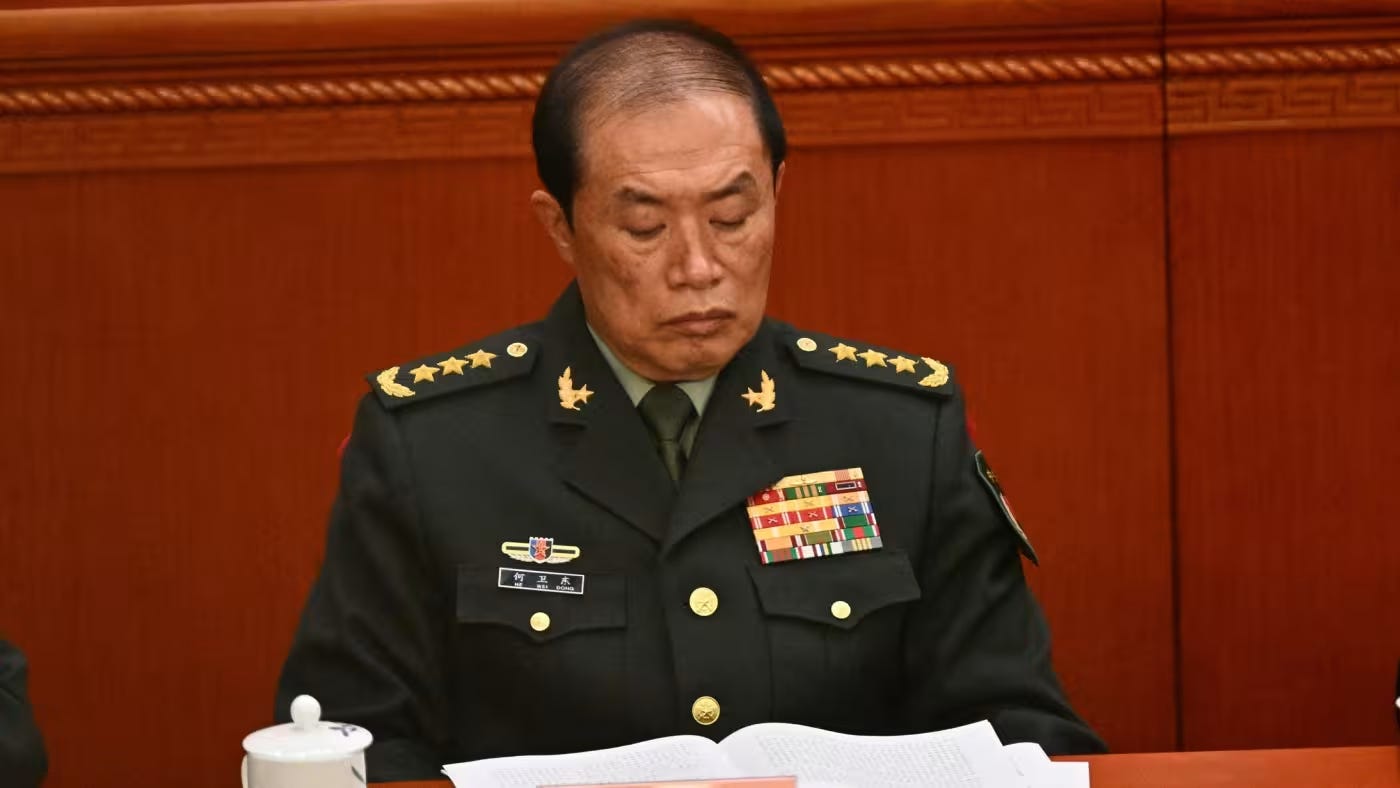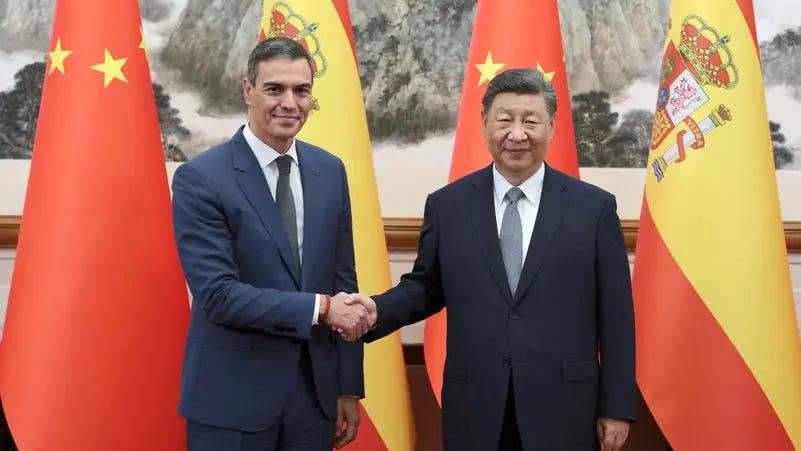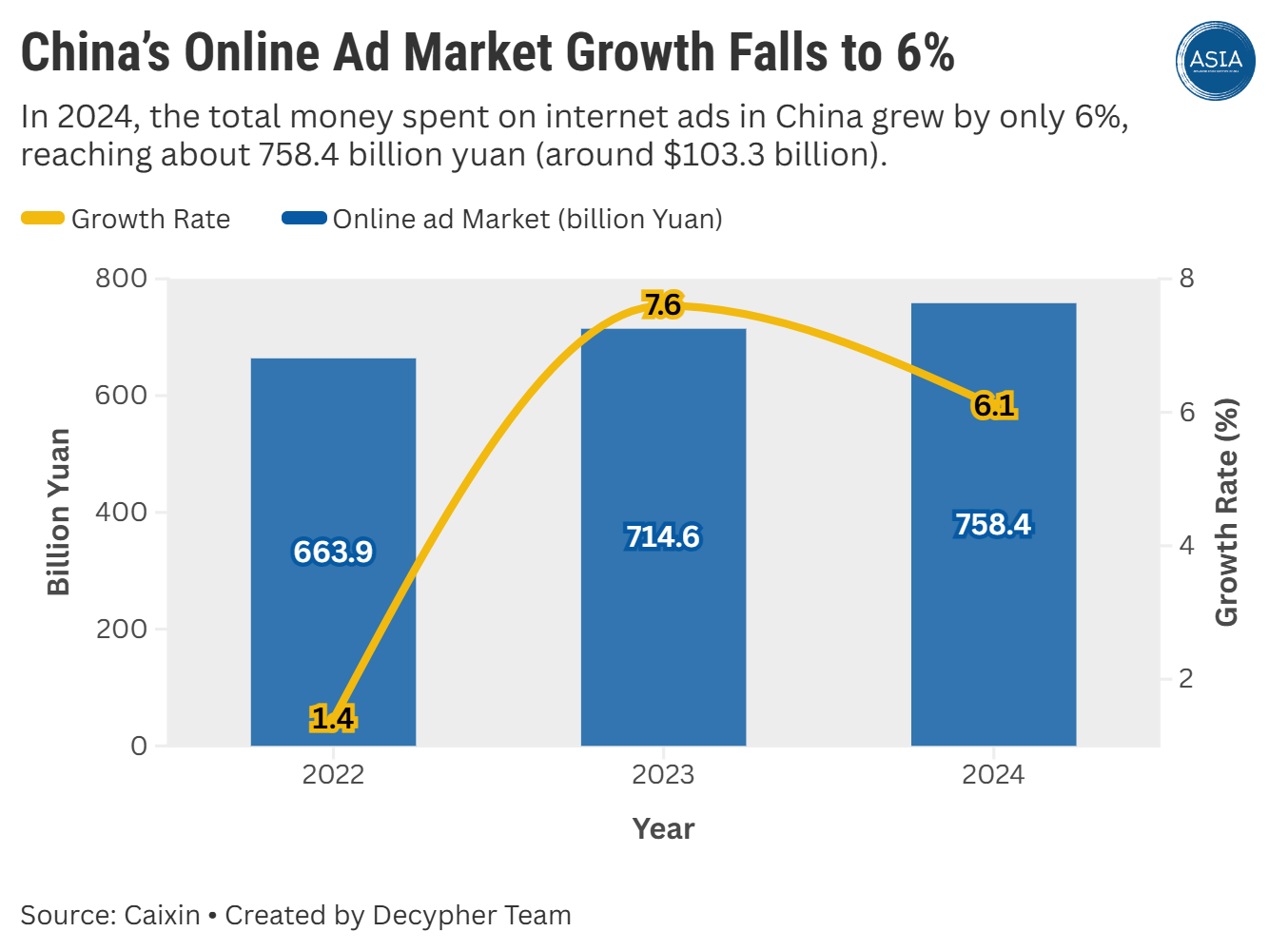China This Week: Xi to Visit Southeast Asia, Chinese Fighters in Ukraine, US-China Economic Rift Widens
This week's Beyond the Great Wall provides an overview of key developments within China, along with insights into its foreign affairs.
China Quote 🗩
“Chinese loans are perhaps as important as IMF programs for keeping the economy afloat. No IMF program for Pakistan is complete without consideration of the loans Pakistan owes to China."
Muhammad Shoaib, a postdoctoral fellow at George Mason University
Economic Activity🏦
China Vows Support to Help Graduates Find Jobs as US Trade War Weighs on the Economy
Liu Zhen writes in the South China Morning Post that Beijing has pledged to create a “comprehensive system” to boost employment for university graduates amid rising economic pressures from the US-China trade war. The plan includes skills training, job search assistance, expanded postgraduate intake, and incentives for entrepreneurship, targeting over 12 million graduates entering a sluggish job market in 2025.
China Leaders to Meet on Stimulus After Trump’s Tariff Shock
Bloomberg reports that China’s top leadership is set to meet to discuss new economic stimulus measures in response to heightened tariffs imposed by US President Donald Trump. The ad-hoc meeting will address support for housing, consumer demand, and tech innovation. Financial regulators are also planning parallel discussions to stabilise markets and bolster growth.
Inside China🐉
Top Chinese General Removed in Xi Jinping’s Latest Purge

Demetri Sevastopulo writes in the Financial Times that General He Weidong, China’s second-highest-ranking military officer and a politburo member, has been removed in Xi Jinping’s most significant military purge in decades. He’s dismissal, reportedly linked to corruption, underscores Xi’s tightening grip on the PLA, following previous removals of top commanders and defence ministers to assert political and institutional control.
China and the World🌏
China’s Xi Meets Spanish PM Sánchez in Beijing

Al Arabiya reports that Chinese President Xi Jinping met Spanish Prime Minister Pedro Sánchez in Beijing amid EU debates over trade policy with China following US tariff hikes. Sánchez, on his third visit to China in two years, previously urged the EU to adopt a “fair trade order” instead of imposing steep tariffs on Chinese electric vehicles.
Xi Jinping’s Southeast Asian Tour: Strategic ‘Charm Offensive’ Amid US Tariff War
Channel News Asia reports that Chinese President Xi Jinping will visit Malaysia, Vietnam, and Cambodia in a strategic outreach move amid US tariff hikes. Analysts view the tour as a bid to secure economic and political support in Southeast Asia, though host nations are expected to tread cautiously, balancing ties with both Washington and Beijing.
EU Leaders Plan Beijing Trip in July for Summit with China’s Xi
Reuters reports that European Union leaders are expected to visit Beijing in late July for a summit with Chinese President Xi Jinping, according to the South China Morning Post. The move comes amid escalating US-China trade tensions and reflects Europe’s attempt to navigate its relationship with China while managing its own economic and strategic interests.
UK Sends Military Chief to China for First Visit in 10 Years
Jonathan Beale and Tiffany Wertheimer write in the BBC that Admiral Sir Tony Radakin, the UK’s Chief of the Defence Staff, has visited China for the first time in a decade, discussing global security and military communications with Chinese officials. The visit, aligned with efforts to stabilise UK-China relations, comes amid heightened US-China trade tensions and regional security concerns, particularly over Taiwan.
More Than 150 Chinese Nationals Are Fighting for Russia in Ukraine, Zelenskyy Says
Mithil Aggarwal writes in NBC News that Ukrainian President Volodymyr Zelenskyy has alleged over 150 Chinese nationals are fighting alongside Russian forces in Ukraine, calling it a major escalation. Ukraine has captured two Chinese fighters and claims Russia is recruiting through social media. Beijing has denied involvement, urging restraint and asserting it supports peaceful resolution of the conflict.
U.S. and China Headed for ‘Monumental’ Split, Putting World Economy on Edge
Daisuke Wakabayashi, Alexandra Stevenson, Patricia Cohen, and Keith Bradsher write in the New York Times that the escalating trade war between the U.S. and China—marked by reciprocal tariffs now reaching 145%—is tearing apart a decades-old economic partnership. The split risks pushing the U.S. into recession, deepening China's slowdown, and unsettling global trade networks, with businesses and consumers caught in the crossfire.
Facing Trump Tariffs, Vietnam Eyes Crackdown on Some China Trade
Francesco Guarascio writes in Reuters that Vietnam plans to curb transhipment of Chinese goods and tighten controls on dual-use exports amid talks to reduce steep US tariffs. Accused of aiding China in evading duties, Hanoi is offering trade reforms and tech oversight to secure tariff relief while balancing its economic ties with both Beijing and Washington.
Beijing Bites Back at US Tariffs by Curbing Hollywood Film Imports
AsiaOne reports that China will reduce imports of Hollywood films in retaliation for US President Donald Trump's latest tariff escalation. While symbolically high-profile, analysts say the move will have limited economic impact as US films now contribute just 5% of China’s box office revenue, with domestic productions dominating the market.
Man Detained in Sweden on Suspicion of Spying on Uygurs for China
South China Morning Post reports that a Swedish court has detained a man suspected of collecting intelligence on Uygurs for the Chinese government. Authorities declined to disclose his nationality or further case details. Rights groups have long accused Beijing of abuses against Uygurs in Xinjiang, allegations China denies, calling them politically motivated.
In Secret Meeting, China Acknowledged Role in U.S. Infrastructure Hacks
Dustin Volz writes in the Wall Street Journal that Chinese officials privately admitted to U.S. counterparts in December that Beijing was behind cyberattacks on U.S. infrastructure, including ports and utilities. The campaign, dubbed Volt Typhoon, was linked to tensions over Taiwan. U.S. officials warn such operations threaten national security and critical infrastructure resilience.
Meta Whistleblower Claims Tech Giant Aided China in AI Race, Undermined U.S. Security

Barbara Ortutay writes in Fortune that former Facebook executive Sarah Wynn-Williams testified before the U.S. Senate, accusing Meta of secretly aiding China in its AI ambitions while undermining American security interests. She alleged Meta sought favour with Beijing to build an $18 billion business and censored Chinese dissidents. Meta denied the charges, calling them false and disconnected from reality.
China Pledges $137 Million for Myanmar Earthquake Relief
Reuters reports that China has pledged 1 billion yuan (US$137 million) in emergency aid to Myanmar following the devastating March 28 earthquake. The funds will support food, medical aid, shelter, and expert teams. China has also deployed over 30 rescue teams and concluded its search-and-rescue mission on April 9, reinforcing its commitment to disaster relief and regional solidarity.
TSMC Sales Beat Estimates as AI Demand Soars Ahead of US Tariffs
The Straits Times reports that TSMC posted a 42% jump in quarterly revenue, driven by surging demand for AI chips and smartphones before new US tariffs. Revenue hit NT$839.25 billion, surpassing expectations. However, concerns remain over potential US tariffs on semiconductor imports, which could affect the company’s outlook despite robust AI investment by global tech firms.
Tech in China🖥️
New AI Fund in China to Pour US$8 Billion into Early-Stage Projects
Ann Cao writes in the South China Morning Post that China has launched a US$8.2 billion state-backed AI Industry Investment Fund to support early-stage artificial intelligence projects. Backed by the Big Fund and managed by Guozhi Investment, it aims to advance the AI supply chain and embodied AI development, reinforcing Beijing’s drive for technological self-reliance amid escalating US export restrictions.
De/Cypher Data Dive📊
China's advertising market especially online ads isn't growing as fast as it used to. In 2024, the total money spent on internet ads in China grew by only 6%, reaching about 758.4 billion yuan (around $103.3 billion). Businesses are adopting a more cautious approach to advertising, prioritizing campaigns that deliver immediate sales returns over long-term brand building.
Image of the Week📸

- - -



